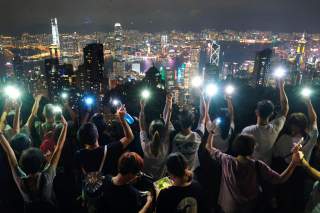China Will Rein in Hong Kong Through Its Economy
Hong Kong may remain a busy business city but its self-proclaimed future as “Asia’s Global City” seems bleak.
So much more is needed. Chief Executive Lam, after three months of stony silence, conceded that public “discontent extends far beyond the [extradition] bill.” Problems include, in her words, “housing and land supply, income distribution, social justice and mobility, and opportunities for our young people, as well as how the public could be fully engaged” in government decisions—a hint at possible political reform. So far, however, these generalities lack substance.
One helpful suggestion has come from Beijing. For years, its Communists have pampered Hong Kong’s billionaire capitalists, notably property developers, on the theory that this would help keep the city prosperous and docile. But now officials have said Hong Kong should designate more land for residential use and require developers to build more housing at lower prices. Significantly, they’ve also warned adjacent Shenzhen to avoid the Hong Kong system when setting their own housing policies.
More homes at lower prices would be both useful and would miss the point. More and cheaper housing is a key popular demand. But the underlying grievance is the sense that the Chinese Communist Party denies local residents their promised right to run their own affairs without major interference from above. Unless Xi and his Politburo colleagues can find a way to restore public trust, Hong Kong may remain a busy business city but its self-proclaimed future as “Asia’s Global City” seems bleak.
Robert Keatley is a former editor of The Asian Wall Street Journal and the South China Morning Post, both of Hong Kong.
Image: Reuters

